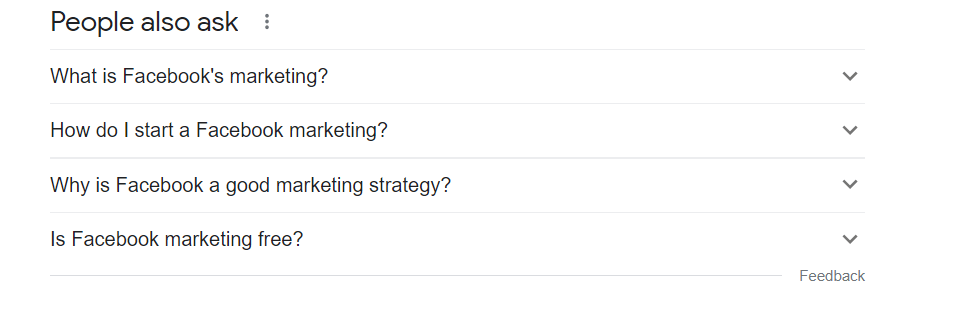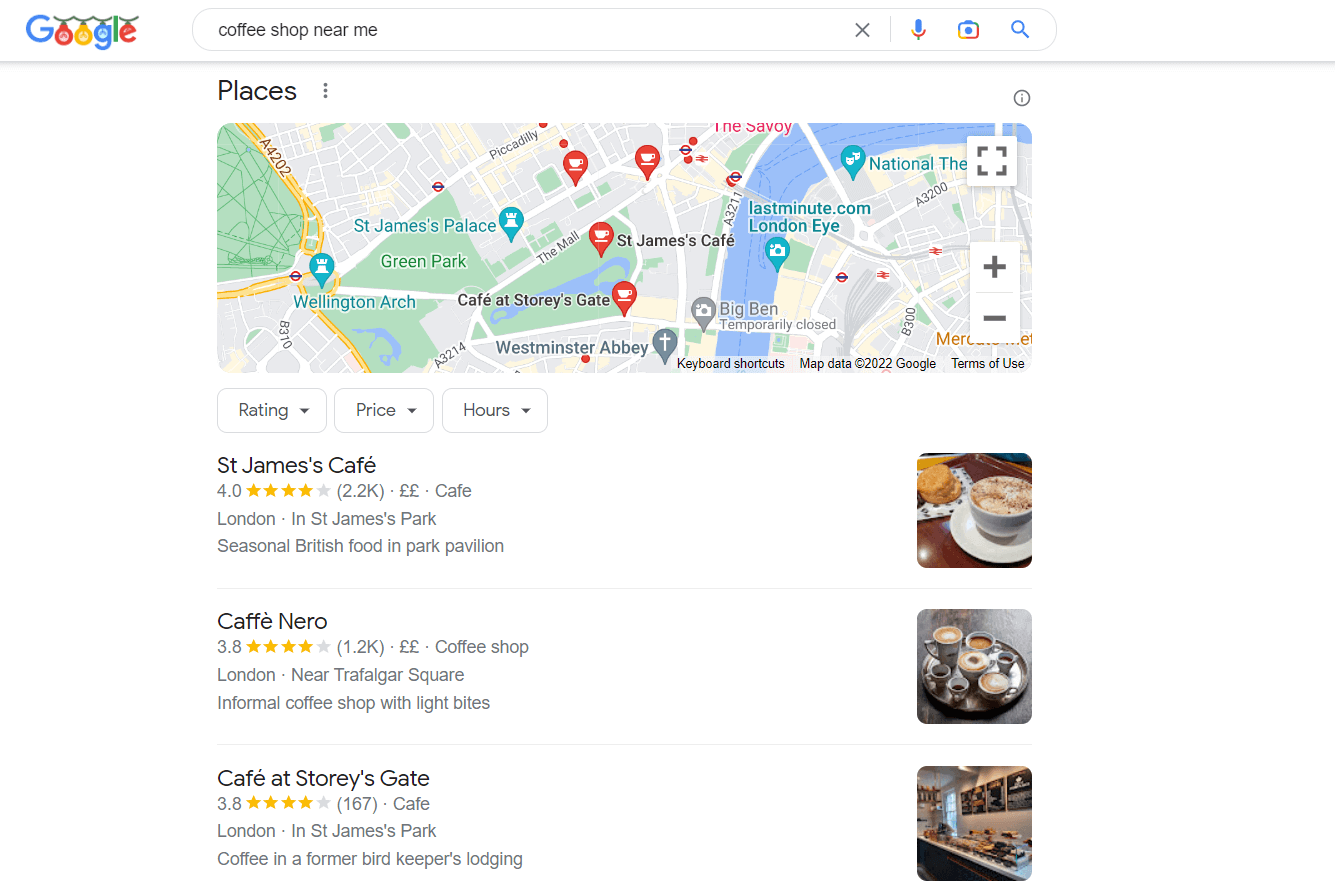SEO is always changing. With developments in voice search technology and AI, more users are accessing search results with their voices every day. In fact, an impressive 71% of consumers prefer using voice search queries over typing.
Are you making the most of this increasing search trend?
As you probably know, people have very different behaviours when it comes to voice search vs text search. People speak differently and ask about different kinds of things. This means optimising for voice search requires a unique approach in your SEO strategy.
In this guide, we’ll cover exactly how optimising for voice search can impact your website’s SEO. We’ll also discuss some of the best strategies you can use to boost your voice search rankings.
Understanding Voice Search
There’s a clear difference in the way people use voice search compared to written search. When it comes to your SEO strategy, understanding and optimising around these differences can make a big difference to how your site attracts traffic from these different search styles.
For example, if you want to search for the weather in London and you’re typing this query into your smartphone, you’ll probably type something like “weather London”. This kind of shorthand typing is something we have all adopted through the use of search engines.
However, if you use voice search for the same query, you’ll probably say something like “what is the weather in London like today?”. Because you just speak and don’t have to type, it’s much easier to perform more detailed search queries like this.
In both cases, the search results should be the same. Although, the search queries are very different. So, when optimising your site for voice search, you’ll need to understand the different ways that voice search is used compared to written search.
This means search engines need to understand search intent when displaying search results for voice search. In this case, search intent is more important than optimising for specific keywords.
As voice search technology becomes more popular, these programs also become more refined. Platforms like Siri, Google Assistant, and Cortana are using AI to better understand natural phrases and help search engines get a better grasp on what the user is trying to communicate.
Here are some ways that this is happening.
Follow Up Queries
Let’s say you perform a voice search for “how far away is Buckingham Palace?” and Google tells you the distance. Then you follow that query up with “what does it look like?” or “how big is it?”. In this case, voice search technology can understand that “it” refers to Buckingham Palace, and so it answers these questions correctly.
This means Google understands context. And when you start making queries about a topic, Google will be able to dive deeper into that topic and provide more insightful and accurate responses based on the topic.
Spelling
If Google makes a mistake in the search results it shows you, you can always clarify the query by spelling out a word letter-by-letter. The search engine will understand what this means and show you relevant search results.
Location-Based Context
Google understands your location and will optimise voice search results around this. For example, you might be in London and ask “where is the museum?”. Google will understand that you mean the Natural History Museum in London and will find results based on this.
App-Based Context
If you talk about something specific in an app, you can ask questions about that topic without referencing the name, and Google will show you relevant results. This is because Google understands the context of the topic based on the app’s use.
Voice Search Optimization: Context and Conversation
The examples above all reveal the same thing: context and search intent are everything when it comes to voice search.
When you optimise your website for voice search, you’ll need to think less about specific keyword phrases and more about providing content that is relevant to the search query.
This comes down to creating high-quality content, and writing it in a conversational tone. More on that later.
While SEO can get very technical, the one thing you need to keep in mind for voice search is that you’re not going to “trick” search engines or optimise your site around a very specific query to get a specific ranking. Instead, you should focus on creating the best possible resources for specific topics. Google will understand the topic and context, which is necessary for gaining traction from voice search.
Different Types Of Voice Search and Smart Technology
On the topic of search intent and voice search, it’s important to understand how people use different smart-assistant-enabled devices.
By understanding how each device is used, you can optimise and tailor your content to better match the intent of the different searchers you plan to reach.
Smartphones
Smartphones are generally used for quick voice searches where the user wants to find a specific answer or solution to their problem. This could be asking for ideas on what to do in an area or answering a piece of trivia. Smartphone voice queries are all about fast and quick answers.
Smart Speakers
People use smart speakers in their homes, and so they are often used for longer, more detailed search queries. This could include things like answers to longer questions or song requests.
Car Speakers
Car speakers are one of the most popular use cases for voice searches. 52.8% of people use voice search when driving, where they ask for locations, directions, or information about specific places – like “where is the best coffee shop near me?”.
How Optimising for Voice Search Can Impact Your SEO
There’s clearly quite a lot to consider when thinking about voice search. So, exactly how does optimising for voice search impact your SEO? What are the benefits of this?
Voice search is a quick and easy way for users to get the answers they want. The hands-free technology makes it easier for users to multitask and perform search queries when doing a variety of tasks (like driving or walking). This means voice search technology can result in a lot more searches taking place, which means more traffic opportunities for your site.
Because voice search takes a more contextual and topical-driven approach, this also means that it offers more opportunities for your content to rank and gain traffic.
For example, let’s say you have a blog post titled “The ultimate guide to Facebook marketing”. You might have a very short section in that guide under the heading “What are Facebook ads?”. If that content is relevant and of good quality, that specific section could help your entire content piece to rank in voice search results for a question about Facebook ads. This is different from trying to get your content to rank for a more broad query like “Facebook marketing guide”.
This is because voice search is largely focused on short answers to specific questions. Users won’t make a voice request if they want long, detailed information. Instead, they will use voice search to find a quick and easy answer to their question.
While this provides many great opportunities for your content to gain more traction, it also means that voice search optimization isn’t always the best route for every piece of content on your site.
Not All Content Needs to Be Voice Friendly
Before we get into the strategies you can use for optimising your content for voice search, let’s just get one thing clear – not all content needs to be voice search-friendly. In fact, trying too hard to optimise for voice search could negatively affect some types of content.
For example, location-based businesses can benefit big time by optimising for voice search. Many voice search queries are things like “coffee shop near me” – which could be hugely beneficial for relevant local businesses.
However, voice search isn’t replacing traditional search – it’s just supplementing it. This means you shouldn’t focus your entire SEO strategy around voice search optimization, but you should consider how you could gain some extra traction from voice search.
Let’s say a user wants a detailed guide on a topic that they can follow – voice search wouldn’t be the best solution for them. If they want a quick answer to their question, then voice search is helpful.
Before establishing how to optimise your website for voice search, try to find out what type of content on your website best lends itself to voice search and what scenario would cause a user to find your site via voice search. This can help you establish where voice search optimization can be most valuable for your SEO strategy.
Ultimately, voice search should help you find more traffic opportunities without affecting the user experience.
How to Optimise for Voice Search to Improve SEO
Now that you know how voice search works and how it can impact your SEO, you’ll want to know how you can optimise your website for voice search queries. Here are some of the best strategies you can use to make this happen.
1. Identify Conversational Keywords
You already know about short-tail and long-tail keywords and the differences they have in your SEO strategy.
Very short and vague keywords are something you should avoid in your SEO strategy in the first place, but this is taken to a whole new level with voice search optimization.
With voice search, typical long-tail keywords aren’t long enough. Instead, you’ll want to focus on conversational keywords, which could be full phrases, questions, or complete sentences. These are the queries that users ask for with voice search.
Think of these keywords as the way people actually speak in real conversations, and not the kind of shorthand keywords you optimise for with regular SEO.
A great tool to help you identify these keywords is WebCEO’s Keyword Suggestions. You can use the question research tool and choose all conversational phrases. This reveals conversational keyword ideas.

Image: Searchenginejournal.com
A good rule of thumb is to look for keywords that begin with words like “who”, “what”, “where”, “how”, or “when”. These are all question-based keywords in a more conversational format.
You don’t just have to use a keyword research tool to discover these keywords though. Another great strategy is to look at Google’s “People also ask” feature in the SERPs. Just type in your regular target keyword (the short-tail version), and you will see these questions:

These are natural, conversational keywords that you could target. Google’s autocompleting feature is also a great way to find keywords like this.

In each case, try to incorporate some of these conversational keyword ideas into your content. This will make your content feel more natural, and it will help you target the common search queries that people often use with voice search.
2. Go Deep into Context and Topical Research
As we’ve already established, voice search optimization is less about keywords and more about contextual topics. So when you’re researching a topic for content, don’t only focus on the SERPs and keywords. Instead, try to look towards other forms of online content – like forums, social media groups, or podcasts.
This can help you gain a more realistic understanding of what people actually search for and say about a certain topic. Including this kind of information in your content can make it more conversational and natural, which will help you with voice search results.
One great place to look for this is Reddit. Find a subreddit on the platform related to your niche and take a look at some of the most popular threads. This gives you a good idea of the kind of questions and conversations people are actually having. Targeting these topics in your content can help you with voice search optimization.
3. Add an FAQ Section to Your Content
Adding an FAQ section to your website can do wonders for your SEO. This applies to a general FAQ page on your site, as well as FAQ sections on specific pages or blog posts.
When a user searches for a particular topic, they often don’t just want one question answered. Instead, they will have a range of related questions.
This type of search habit is frequently seen in voice searches, where a user might continually ask related questions on a specific topic. Including an FAQ section lets you cover these questions, which gives your content more chances of ranking for the right search terms.
Not only this, but questions and answers are the foundations of voice search. Voice search users pretty much always ask a question and want a short, specific answer. FAQ sections translate perfectly to this.
Again, go back to Google’s “People also ask” section, as well as the related searches section at the bottom of the SERP.

These all provide options to include in your FAQs. Your keyword research tool, and Google Search Console page reports, could also provide FAQ ideas.
Again, these are natural and conversational search queries that help to add more context to your content. By covering a wide range of FAQs, you’ll be able to make your content more broadly accessible and relevant to different voice search queries.
When writing FAQs, make the answers short, succinct, and straight to the point. This makes the answers easier for voice search technology to render and repeat.
4. Make the Most of Your Google Business Profile
As we’ve already mentioned, voice search presents a massive opportunity for local businesses. To make the most of this, you’ll want to optimise your Google Business Profile.
Google Business Profiles are an essential tool for any local business. It’s free and easy to create a profile, and it can help to put your business on the map (literally) and access a lot more visibility from local search queries.
Make your profile as detailed as possible. Try to add as much information about your business and what you offer. Include contact details, your address, and any other business-specific information you can. This gives Google more context about your business, which will help you appear in more local search results.

5. Focus On Featured Snippets
Voice search results are all about position zero. This is the very top-ranking featured snippet in a search results page, like this:

Winning this position is like a golden ticket in SEO – especially when it comes to voice search.
Adding a relevant FAQ section to your page is the first essential step to this. Just make sure that your answers are short, concise, and to the point – this will vastly improve your chances of winning position zero spots.
Using simple language is important here – a tool like the Hemingway App is a great way to achieve this (aim for a 9th-grade level).
The other important strategy for winning featured snippets is to add schema markup to your pages. Basically, this is a language that tells search engines what kind of content exists on your page so that they can display relevant snippets of this content in the SERPs. Here’s an example of a featured snippet powered by schema markup:

While some sources say that adding structured data to your page doesn’t affect voice search SEO much, it could still make a difference. This is because structured data helps you add the exact information users are looking for directly in the SERPs.
Doing this could make it easier for voice searches to find relevant answers straight away – not to mention the various other advantages that structured data can have on your SEO strategy.
6. Focus On Mobile-Friendliness
Making your site mobile-friendly is critical for SEO, but it’s especially important if you want to optimise for voice search. 20% of all search queries on mobile devices are made with voice search. If your site isn’t responsive to mobile, then you’re missing out on a lot of traffic opportunities.
Make sure your site loads fast and that it uses a responsive design for different screen sizes. You can check your site’s mobile friendliness with Google Search Console or other SEO tools. These tools should offer some helpful tips and insights on improving your site’s mobile performance.
7. Keep Your Language Natural
We may have mentioned this a few times, but it’s really the most important part of optimising for voice search. Try to focus on as many long-tail and conversational keywords as possible. Write your content the way a human would speak it, and keep the tone conversational. All of this makes your content more suitable for voice queries.
Focusing on shorter paragraphs and short, easy-to-read sentences can also make an enormous difference to how natural and user-friendly your site is. Long, dense paragraphs will be a lot more difficult to rank with a voice search.
8. Use Videos in Search Results
Videos can also be an excellent way to target voice search queries.
Videos are a lot more engaging than text results, and they can offer more insightful and detailed responses to users’ voice search queries. If you optimise your videos around the right keywords, you could get them to rank directly in the SERPs.
Achieve position zero with the video, and it could make an enormous difference to your voice search strategy.

Use your conversational long-tail keywords in the video’s title and description to help make the videos more contextual to your topic. Including a lengthy description of the video will also help.
Google can isolate parts of the video and rank them based on the user’s voice search request. This means insightful, informative videos can be an excellent addition to your voice search optimization strategy.
Conclusion
Optimising your website for voice search takes a different direction from regular text-based SEO. When used properly, both options can help you attract a lot more traffic.
While voice search can help make your site more visible, it’s also important to understand when voice search is relevant and under what circumstances you should optimise your content for it. Don’t base your entire SEO strategy around voice search, but do use the tactics above to make sure your site is as voice-search-friendly as possible.
Get it right, and you could discover a significant new opportunity for boosting your website traffic.
